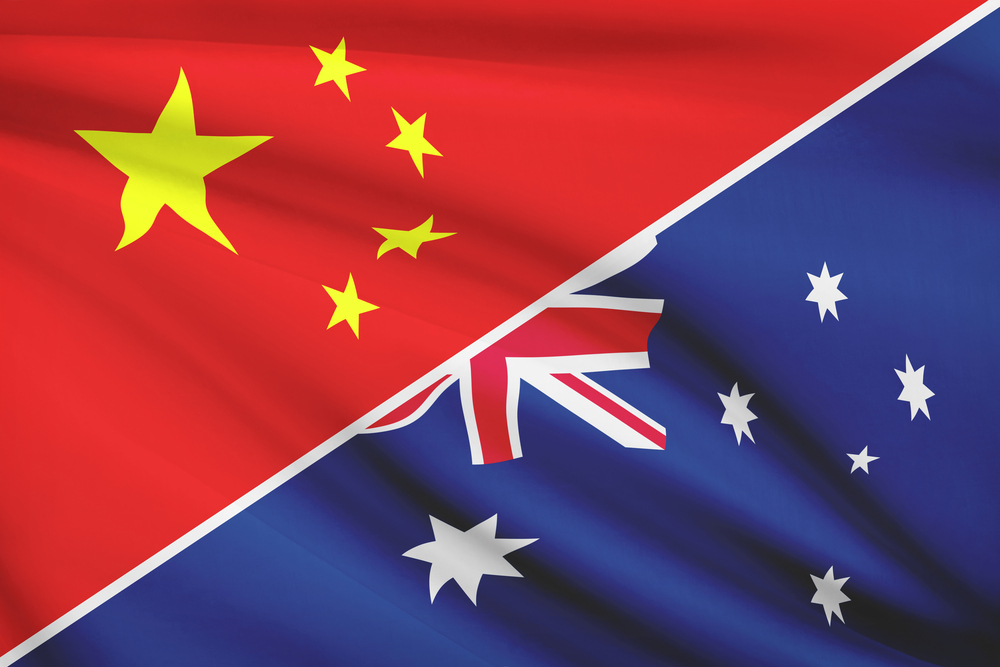Differing Australian Viewpoints on China as a Major Power

Please note that we are not authorised to provide any investment advice. The content on this page is for information purposes only.
What does China’s rise as a major power mean for Australia? The answer depends on whom you ask.
In March 2015, the Sydney Morning Herald’s International Editor, Peter Hartcher, described China as a fascist state that bullies its own citizens and neighbouring countries alike. That about sums up the ‘China threat’ view.
Yet there is also no shortage of CEOs gushing with praise for Chinese government policies that are expected to deliver more than 850 million people into the ranks of the middle class by the end of next decade.
What does China’s rise as a major power mean for Australia? The answer depends on whom you ask.
In March 2015, the Sydney Morning Herald’s International Editor, Peter Hartcher, described China as a fascist state that bullies its own citizens and neighbouring countries alike. That about sums up the ‘China threat’ view.
Yet there is also no shortage of CEOs gushing with praise for Chinese government policies that are expected to deliver more than 850 million people into the ranks of the middle class by the end of next decade.
Australian politicians spend a great deal of time listening to both ends of the spectrum. In November 2014, Prime Minister Tony Abbott allegedly told German Chancellor Angela Merkel that Australia’s policies towards China were driven by ‘fear and greed’. Responding to this comment, Linda Jakobson, founder of the public policy initiative, China Matters, remarked that ‘the Prime Minister captured the bipolar nature of Australia’s attitude towards China’.
This may be true among Australian commentators, CEOs and politicians. However, there is one important group in Australia to which the bipolar tag does not apply: the general public.
In April 2015, the Australia–China Relations Institute (ACRI) surveyed more than 1500 Australians to better understand their attitudes towards China’s rise. The big finding was that on most questions it was the middle ground that had the greatest support.
The ACRI survey started with the question about whether China will replace the US as the region’s dominant power within the next 20 years. Those who believed it ‘very likely’ (27.2 percent) outnumbered those who thought it was ‘not at all likely’ (7 percent) by a ratio of nearly four to one. However, an even larger proportion took a middle of the road position and said it was either ‘somewhat likely’ (40.9 percent) or likely (25.0 percent).
The majority are probably right. The consensus view of the IMF and the OECD is that China will become the world’s largest economy sometime before 2030. In per-capita terms, it will remain well behind the US. In addition, in terms of military might, a 2014 report by the Kokoda Foundation made it plain that China will take much longer to catch up.
The public did take a strong view that China’s rise would be good for the Australian economy. Out of all of Australia’s free trade agreements, 44 percent said that the one with China would bring the biggest benefits. That compares with 31 percent, 20 percent and 6 percent nominating the free trade agreements with the US, Japan and South Korea, respectively.
As far as the security impact goes, the extremes were rejected, particularly at the negative end of the scale. If China did become the region’s dominant power, less than 14 percent of Australians thought this would be ‘very damaging’ for Australian security. In contrast, nearly one-quarter said it would be not damaging at all. Still, that means that 63 percent took a position somewhere in between.
Respondents were then asked if Australia should expand military cooperation with the US to help counterbalance China’s growing military power in Asia. Once more, the extremes were shunned: nearly three-quarters of Australians said this would be either ‘somewhat unwise’ or ‘wise’ (35.4 and 38.1 percent respectively). That left just either one-quarter opting for ‘very unwise’ (11.9 percent) or ‘very wise’ (14.7 percent).
And on whether Australia should send its armed forces to join a war against China in support of the US, fewer than one in ten (9.2 percent) said that it would be ‘very wise’ to go in with guns blazing. Nearly three times as many were of the view that this would be ‘very unwise’ (26.0 percent).
The results show that most Australians do not buy into the idea that a more powerful China is an obvious threat to their national interest. Unsurprisingly there is some caution: Australia and China have different political systems, values, culture, history and language. In addition, the elevation of China in Australia’s national consciousness has been both recent and rapid.
That is even more reason for Australian leaders to avoid letting fear dictate policy. Instead, it provides a clear case for investing heavily to better understand and explain this most complicated of bilateral relationships.
What Australians really think about a rising China is republished with permission from East Asia Forum




